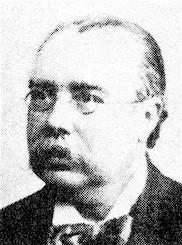1650 - 1727 Person Name: Ernst Lange, 1650-1727 Hymnal Number: 26 Author of "Thine, Lord, is wisdom, Thine alone" in The Clifton Chapel Collection of "Psalms, Hymns, and Spiritual Songs" Lange, Ernst, was born at Danzig, Jan. 3, 1650, where his father, Matthias Lange, was in the service of the Senate. He was for some time secretary in Danzig, and thereafter in Warsaw. In 1691 he was appointed judge in the Altstadt of Danzig, and in 1694 senator. He died at Danzig, Aug. 20, 1727 (Bode, p. 103; Allegemeine Deutsche Biographie, xvii. 623, &c). After a visit to the Netherlands in 1698, Lange allied himself with the Mennonites and Pietists in Danzig, and came into conflict with the Lutheran clergy. His hymns were mostly written about the time when the pestilence visited Danzig, in 1710, and principally appeared in his LXI. Gott geheiligte Stunden, without place or date of publication., but probably at Danzig, 1711 (Preface dated "Danzig, Feb. 12, 1711"). The idea of this work was as a thankoffering for preservation during this trying time; and it embraced 61 hymns, viz., one for each year of his life. A number of additional hymns seem to have been contributed in manuscripts to Freylinghausen's Neues geistreiches Gesang-Buch, 1714.
Lange's hymns which have passed into English are:—
i. Im Abend blinkt der Morgenstern. Epiphany, 1711, as above, p. 4, in 19 stanzas of 4 lines, entitled, "The Saviour Who appeared at Bethlehem to the Wise men from the East, set forth; from Matt. ii. 1-12." A new stanza was added as xx. (probably from his MS.), when the hymn was included by Freylinghausen, 1714, No. 59. Repeated, abridged, in Knapp's Evangelischer Lieder-Schatz, 1837, No. 435 (1865, No. 414). The translation in common use is:—
The wondering sages trace from far. A translation of stanzas i., ii., xx., by Miss Cox, in her Sacred Hymns from the German, 1841, p. 23 (1864, p. 43). Repeated in Hedge & Huntington's American Hymns for the Church of Christ, Boston, 1853; Schaff's Christ in Song, 1869 and 1870, &c.
Another translation is: "At eve appears the Morning Star," by Lady E. Fortescue, 1843, p. 5.
ii. 0 Gott, du Tiefe sonder Grund. God's Majesty, First printed as No. 140, in Freylingkausen, 1714> in 10 stanzas of 141.; repeated in the Berlin Geistliche Lieder, ed. 1863. F. Schleiermacher called it "A masterpiece of sacred poetry." The translation in common use is :—
0 God, Thou bottomless abyss. A spirited tr., omitting stanzas vi., ix., and in 8 stanzas of 12 lines, by J. Wesley, in his Collection of Psalms & Hymns, Charlestown, 1737, No. 16, and the Wesley Hymns and Sacred Poems, 1739 (Poetical Works, 1868-72, vol. i. p. 143). The lines—
"Thy wakened wrath doth slowly move,
Thy willing mercy flies apace"
are adapted from the New Version of Ps. ciii. 8. The hymn passed into the Wesleyan Hymn Book, 1780, in two parts, Nos. 231 and 232 (ed. 1875, Nos. 240, 241). In other hymn-books it has appeared in a variety of centos. As these are all from the text of the Wesleyan Hymn Book, more or less altered and transposed, it will suffice to give their first lines with references to the text of 1780. These centos include:—
(1) While Thee, Unsearchable, I set (i., line 9 alt.). Martineau's Hymns, 1840.
(2) Unchangeable, all-perfect Lord (ii., line 9). Longfellow & Johnson's Book of Hymns, Boston, U.S., 1848.
(3) Thy parent-hand, Thy forming skill (iii). American Methodist Episcopal South Collection, 1847.
(4) Thou, true and only God, lead'st forth (v.). Wesleyan Hymn Book, 1780, No. 232.
(5) Thine, Lord, is Wisdom, Thine alone. Wesleyan Hymn Book (vi.). Scottish Evangelical Union Hymn, 1856.
(6) Parent of good! Thy bounteous hand (vii.). Martineau's Hymns, 1840.
(7) Parent of good! Thy genial ray (vii. alt.). Dr. Thomas's Augustine Hymn Book, 1866.
These details show the extensive use of this hymn in English-speaking countries.
Another translation is, "O God, Thou bottomless Abyss! How shall I competently know Thee," as No. 673 in pt. i. of the Moravian Hymn Book, 1754. In the edition 1886, No. 174, it begins, "O God, Thou fathomless abyss."
iii. Unter denen grossen Gütern. Brotherly Love, or, Quinquagesima. A fine paraphrase of 1 Cor. xiii. First published 1711, as above, p. 37, in 5 stanzas of 10 1., entitled, "The preeminence of Love. From 1 Cor. xiii. 1, 2, 3, 13." When included as No. 423, in Freylinghausen, 1714, a new stanza was added as stanza vi., and this form is No. 798 in the Univerfälschter Liedersegen, 1851. Translated as:—
Many a gift did Christ impart. A full and good translation by Miss Winkworth, in her Lyra Germanica, 1855, p. 50; repeated, abridged, in Kennedy, 1863. In the American Unitarian Hymns of the Spirit, Boston, 1864, and in the Laudes Domini, N. Y. 1884, &c., it begins with the translation of stanza ii., line 5, "Though I speak with angel tongues." [Rev. James Mearns, M.A.]
--John Julian, Dictionary of Hymnology (1907)
Ernst Lange


 My Starred Hymns
My Starred Hymns






